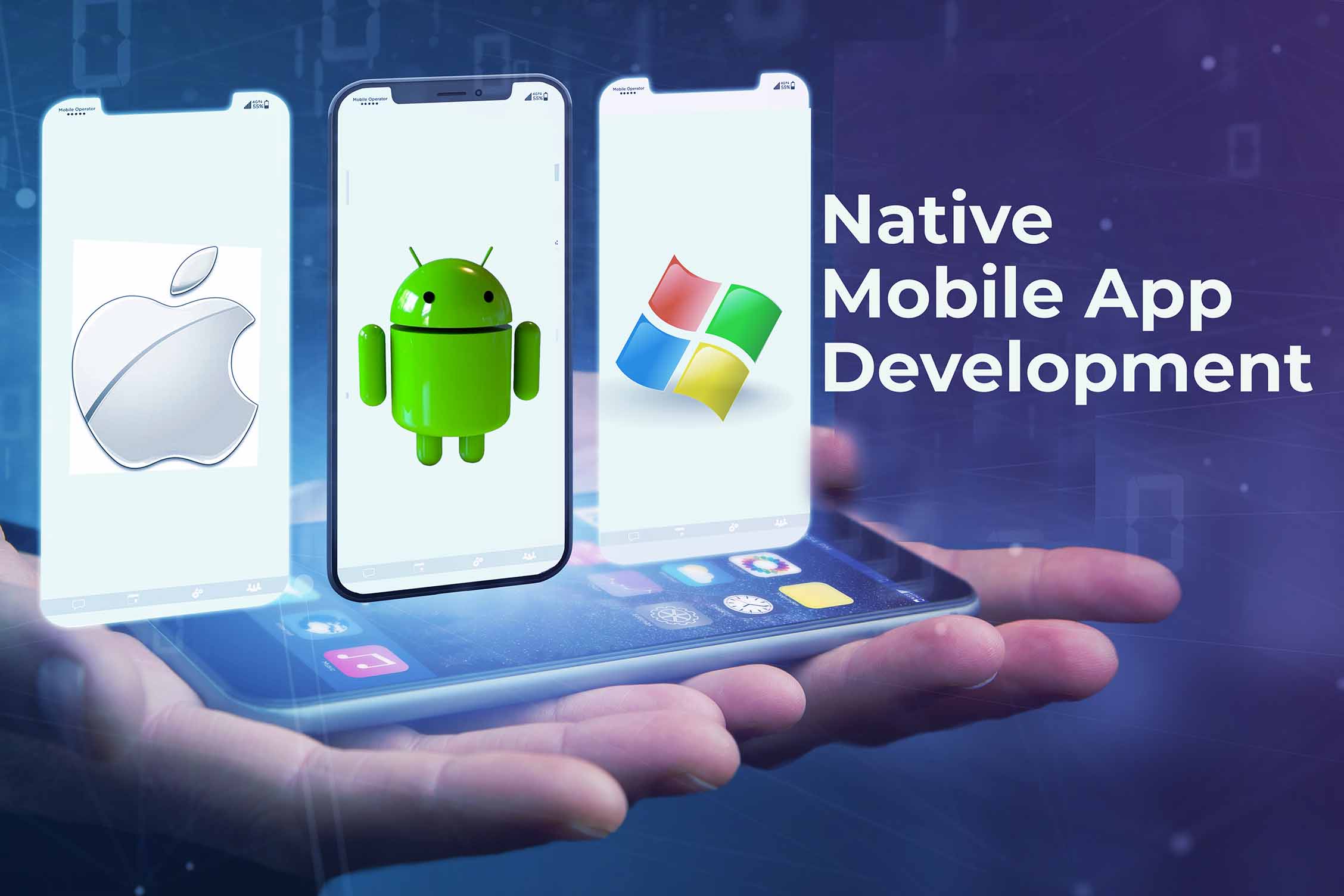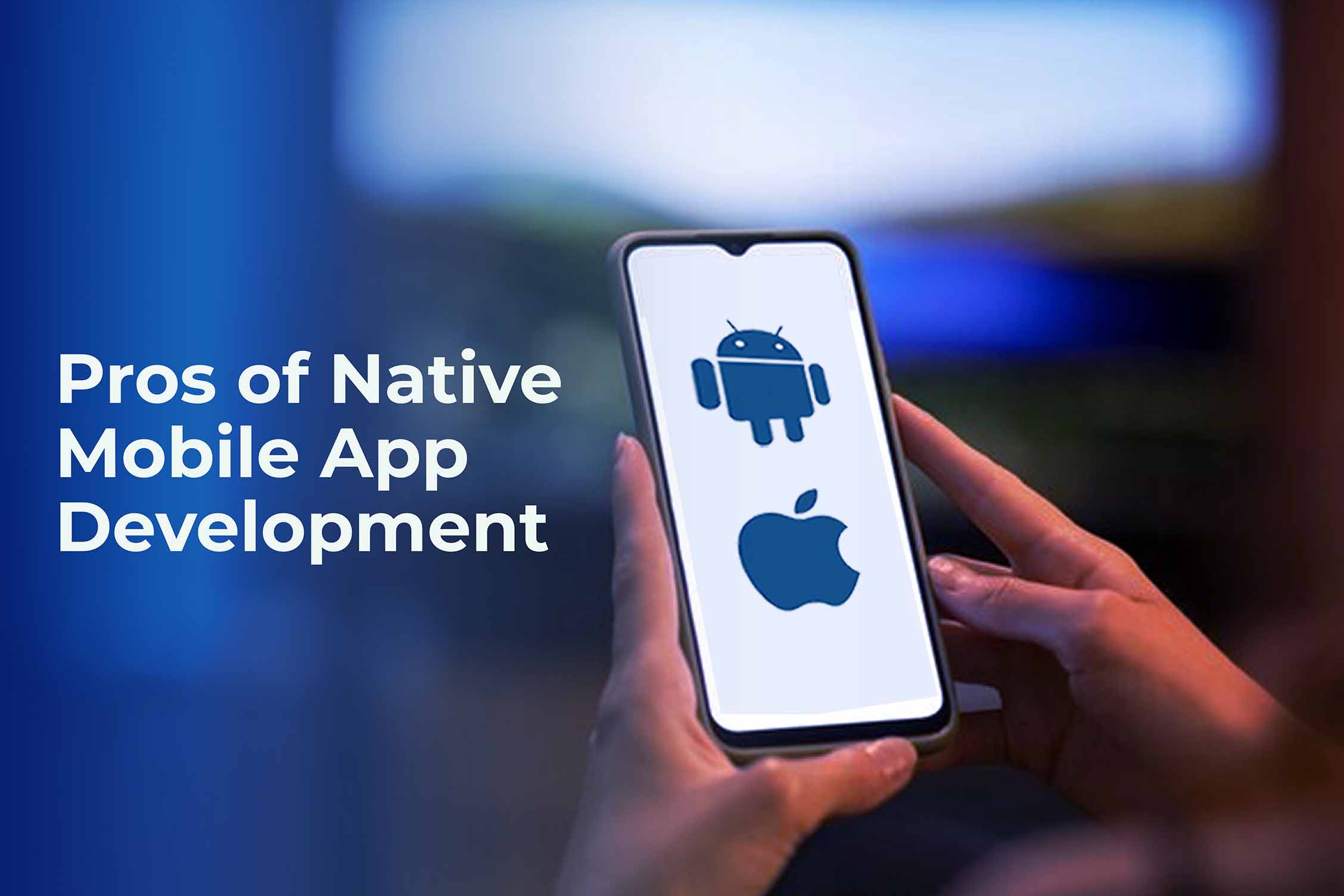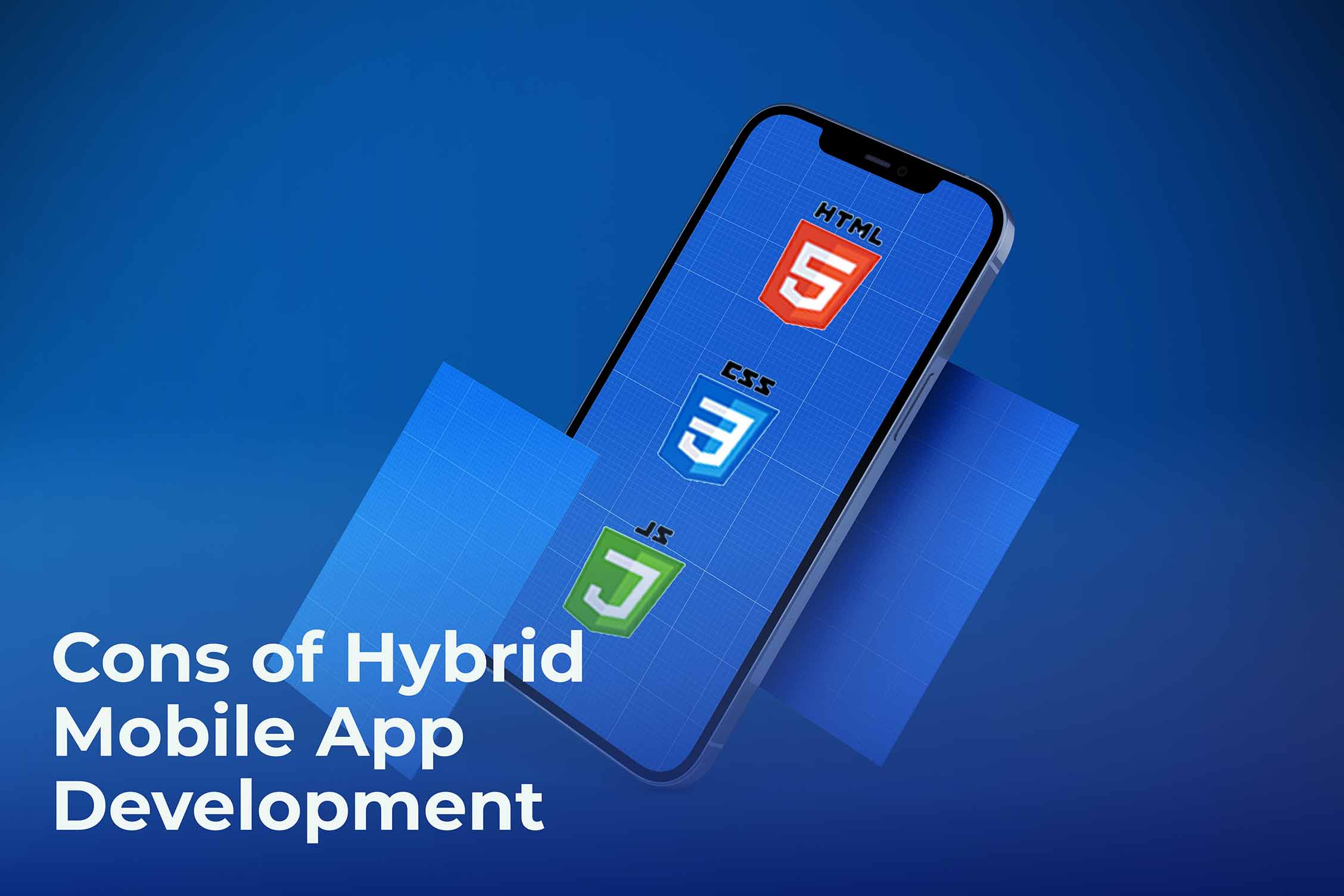Choosing between Native vs. Hybrid Mobile App Development is challenging for multiple reasons. Recent stats highlight a significant cost difference of almost 30% between the two. This financial gap emphasizes the need for careful consideration of the pros and cons associated with each method.
Native development, known for top-notch performance, might be more expensive initially. On the other hand, hybrid development, praised for its efficiency across different platforms, is a more budget-friendly option.
In our comparison of Native vs. Hybrid Mobile App Development, we explore the pros and cons of each approach. So, you can pick a dedicated type of application and make informed decisions that align with their budget constraints and project goals.
Native Mobile App Development

In native vs hybrid mobile app development, native mobile app development involves creating applications specifically for a particular platform, such as iOS or Android, utilizing platform-specific languages and tools. This type of development has distinct pros and cons, which we will explore in this section.
Pros of Native Mobile App Development

Performance Excellence
Native apps are optimized for the specific platform, ensuring superior performance. This is because they directly interact with your device’s hardware, leveraging platform-specific APIs, resulting in faster execution of tasks.
Enhanced User Experience
Native apps provide a seamless and intuitive user experience as they are designed according to the guidelines and user interface components of the respective platforms. This leads to better user engagement and satisfaction.
Access to Device Features
Developers have full access to the device’s features and capabilities, allowing for the integration of advanced functionalities like GPS, camera, and sensors. This enables the creation of feature-rich applications and makes native a winner in native vs hybrid app development.
Platform-Specific Integration
Native apps seamlessly integrate with your platform’s ecosystem, offering features like push notifications, in-app purchases, and authentication methods specific to the operating system. This integration enhances user engagement and facilitates a more cohesive experience within the overall ecosystem of your device.
Optimized for App Store Approval
Native apps often have a smoother approval process on app stores like the Apple App Store or Google Play Store. Since they adhere to platform-specific guidelines and standards, they are more likely to meet the approval criteria efficiently. This can lead to quicker app deployment and updates, ensuring timely access for users.
Performance Analytics and Debugging Tools
Native development platforms provide robust tools for performance monitoring, analytics, and debugging. Developers can use these tools to analyze user behavior, identify performance bottlenecks, and streamline the optimization process. This level of insight is crucial for continuously improving the app’s performance and addressing issues promptly.
Cons of Native Mobile App Development

Development Time and Cost
Building native apps for different platforms requires separate development efforts. This can significantly increase development time and costs for native if you compare native vs. hybrid app development.
Platform-Specific Expertise Required
Developers need specialized knowledge in the programming languages and frameworks of each platform (Swift or Objective-C for iOS, Kotlin or Java for Android), making it necessary to have a diverse skill set within your development team.
App Store Approval Process
Publishing native apps involves adherence to platform-specific guidelines and approval processes. This leads to potential delays and uncertainties during the app launch phase.
Hybrid Mobile App Development
Hybrid mobile app development combines elements of both web and native app development. This method allows developers to create a single codebase that can run on multiple platforms, such as iOS and Android. Let’s explore the pros and cons of hybrid mobile app development in native vs hybrid app development.
Pros of Hybrid Mobile App Development

Cross-Platform Development
An advantage of hybrid development is that it allows you to write code once and deploy it across multiple platforms. This streamlines the development process, reducing the need for platform-specific codebases and ultimately being the top choice in hybrid vs native app development.
Cost-Effectiveness
Hybrid development is more cost-effective than native development, especially for projects with a tight budget. With a single codebase, developers can reach a broader audience without the need for separate teams working on iOS and Android versions.
Faster Development Cycle
The unified codebase and the ability to leverage web development technologies, such as HTML, CSS, and JavaScript, contribute to a faster development cycle. Changes and updates can be implemented more efficiently, speeding up the overall development process in comparison to native app development vs hybrid.
Web Technology Integration
Hybrid apps leverage web technologies like HTML, CSS, and JavaScript. This enables developers with web development skills to contribute to the mobile app development process, making the team more versatile. Additionally, existing web assets can be reused, further expediting development.
Unified Maintenance and Updates
Since hybrid apps share a common codebase, maintenance, and updates can be applied uniformly across all platforms. This simplifies the update process, ensuring that new features or bug fixes are deployed consistently to both iOS and Android users, reducing maintenance overhead.
Access to Plugins and Third-Party Frameworks
Hybrid development frameworks, such as React Native or Ionic, often come with a rich ecosystem of plugins and third-party frameworks. These resources simplify the integration of device features, like camera or GPS, and enable developers to leverage a wide range of functionalities without starting from scratch.
Easier App Distribution
Hybrid apps can be distributed through web links or app stores, making them easily accessible to users. This flexibility in distribution simplifies the deployment process and allows for quick updates without requiring users to download new versions manually.
Cons of Hybrid Mobile App Development

Performance Limitations
While hybrid apps have made significant strides in performance, they may not match their native counterparts in terms of speed and responsiveness, especially for graphics-intensive applications or those requiring complex interactions. So, the hybrid vs native app development difference is apparent.
Limited Access to Device Features
Hybrid apps may face limitations in accessing certain device features compared to native apps. Although plugins and frameworks attempt to bridge this gap, some advanced functionalities may be challenging to implement seamlessly across all platforms.
Dependency on Third-Party Frameworks
Hybrid development often relies on third-party frameworks, such as React Native or Ionic. While these frameworks provide valuable tools, their updates and compatibility issues may affect the stability and performance of the hybrid app.
Native vs. Hybrid Mobile App Development Case Studies
Examining real-world examples of successful mobile applications can provide valuable insights into the efficacy of native and hybrid development approaches. Below are case studies showcasing instances where hybrid vs native mobile app development has excelled:
Native App Development Case Study
Platform: iOS and Android
Instagram, a widely used photo and video-sharing app, opted for a native development approach to leverage the full potential of device-specific features. This choice allowed Instagram to optimize its performance, provide a seamless user experience, and integrate seamlessly with the camera and gallery functionalities on both iOS and Android devices.
Pokemon GO
Platform: iOS and Android
Pokemon GO, an augmented reality mobile game, chose native development to ensure high-performance graphics and real-time interaction with the device’s camera and GPS. The game’s success hinged on delivering an immersive experience, requiring the fine-tuning achievable through native development for both iOS and Android platforms.
Hybrid App Development Case Study
Airbnb
Platform: iOS and Android
Airbnb, a global travel community platform, adopted a hybrid development approach to expedite the release of updates and features across multiple platforms. By using frameworks like React Native, Airbnb maintained a single codebase, allowing faster iterations and simultaneous deployment on both iOS and Android devices, ultimately saving development time and resources.
Evernote (Hybrid)
Platform: iOS and Android
Evernote, a note-taking app, utilized a hybrid development strategy to ensure consistency across platforms while managing development costs effectively. By employing technologies like Cordova, Evernote achieved a harmonized user experience on both iOS and Android, facilitating cross-platform access to notes and data.
Decision-Making Factors

Project Requirements and Goals
Assess whether your project demands nuanced performance, rich user experience, and direct access to device features to decide on native vs hybrid mobile app development. Alternatively, if speed, cost-efficiency, and cross-platform compatibility are primary goals, a hybrid development approach might be more fitting.
Budget Considerations
Take into account the financial resources available for your project when you think about mobile app development, native vs. hybrid. Native development typically incurs higher costs due to the necessity of separate codebases. On the other hand, hybrid development, with its streamlined single codebase, often presents a more budget-friendly option.
Time Constraints
Consider the urgency of your project and the need for simultaneous deployment across multiple platforms. Hybrid development, known for its faster development cycle, can be a strategic choice when time is of the essence. Native development, while providing optimal performance, may require a longer timeframe due to platform-specific development.
Target Audience and Market
Analyze the preferences of your target audience and the dynamics of the market you aim to enter before deciding on hybrid app development vs native. If your users predominantly favor a specific platform, a native app might align better with user expectations. Consequently, if your audience spans various platforms, a hybrid approach allows you to reach a broader user base seamlessly.
Final Thoughts
In today’s edit, we discussed native vs hybrid mobile app development. The success of a mobile app project relies on a nuanced understanding of its unique requirements and a strategic alignment with the chosen development approach.
Whether opting for the precision of native development or the efficiency of hybrid solutions, the key lies in an informed decision that resonates with the goals and constraints of your project at hand.
However, if you aren’t sure what type of mobile application is suitable for your needs, get a free consultation from our experts, and let us help you decide.



